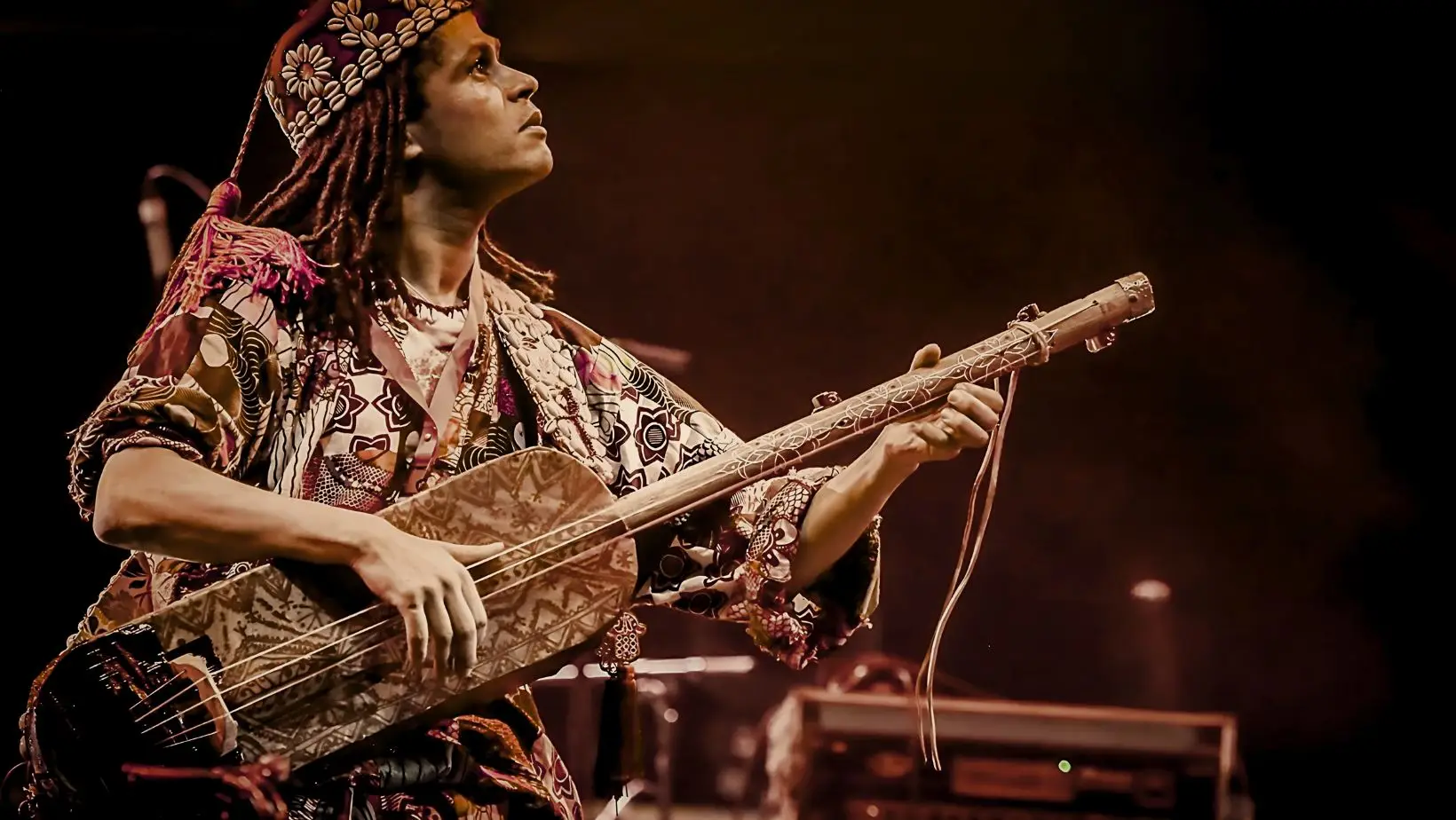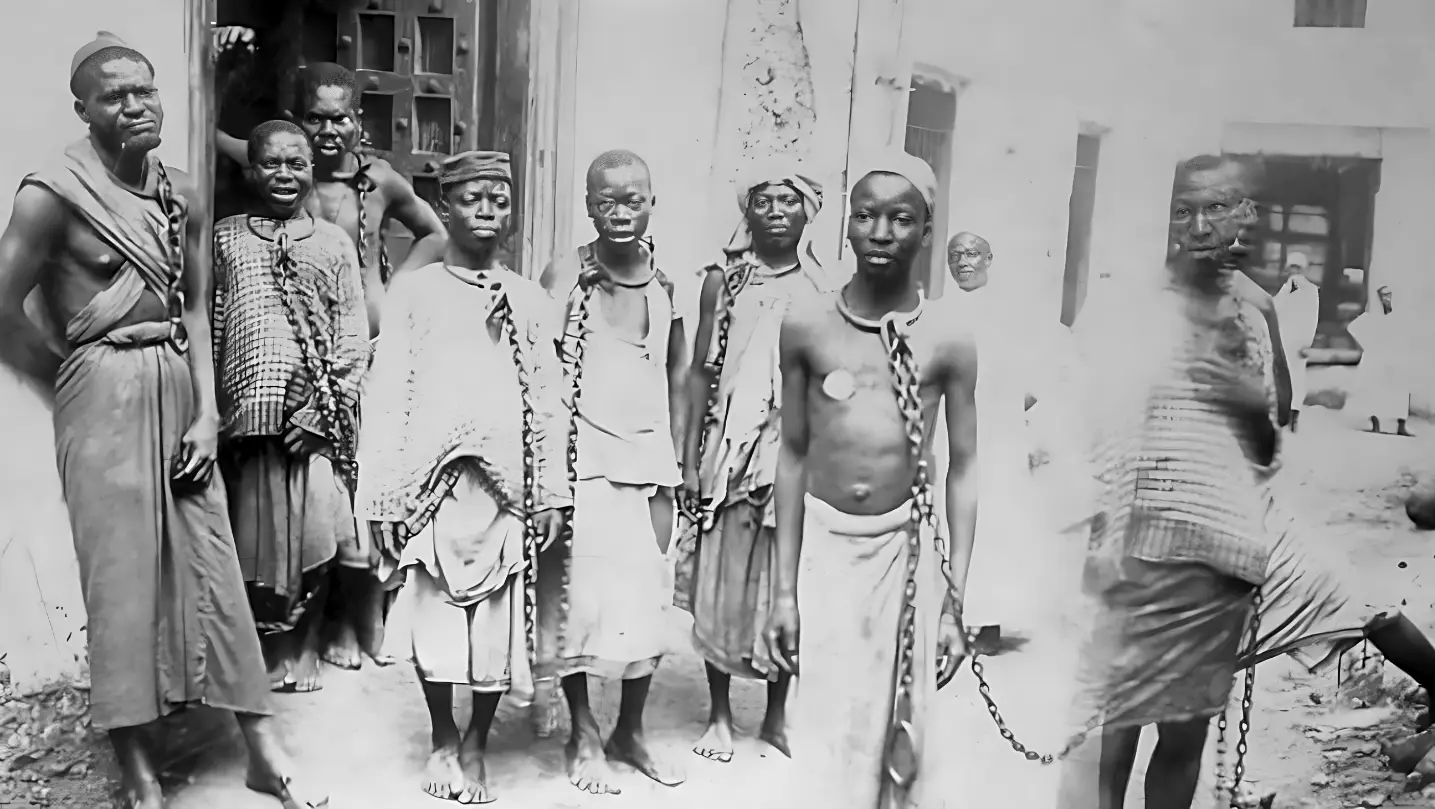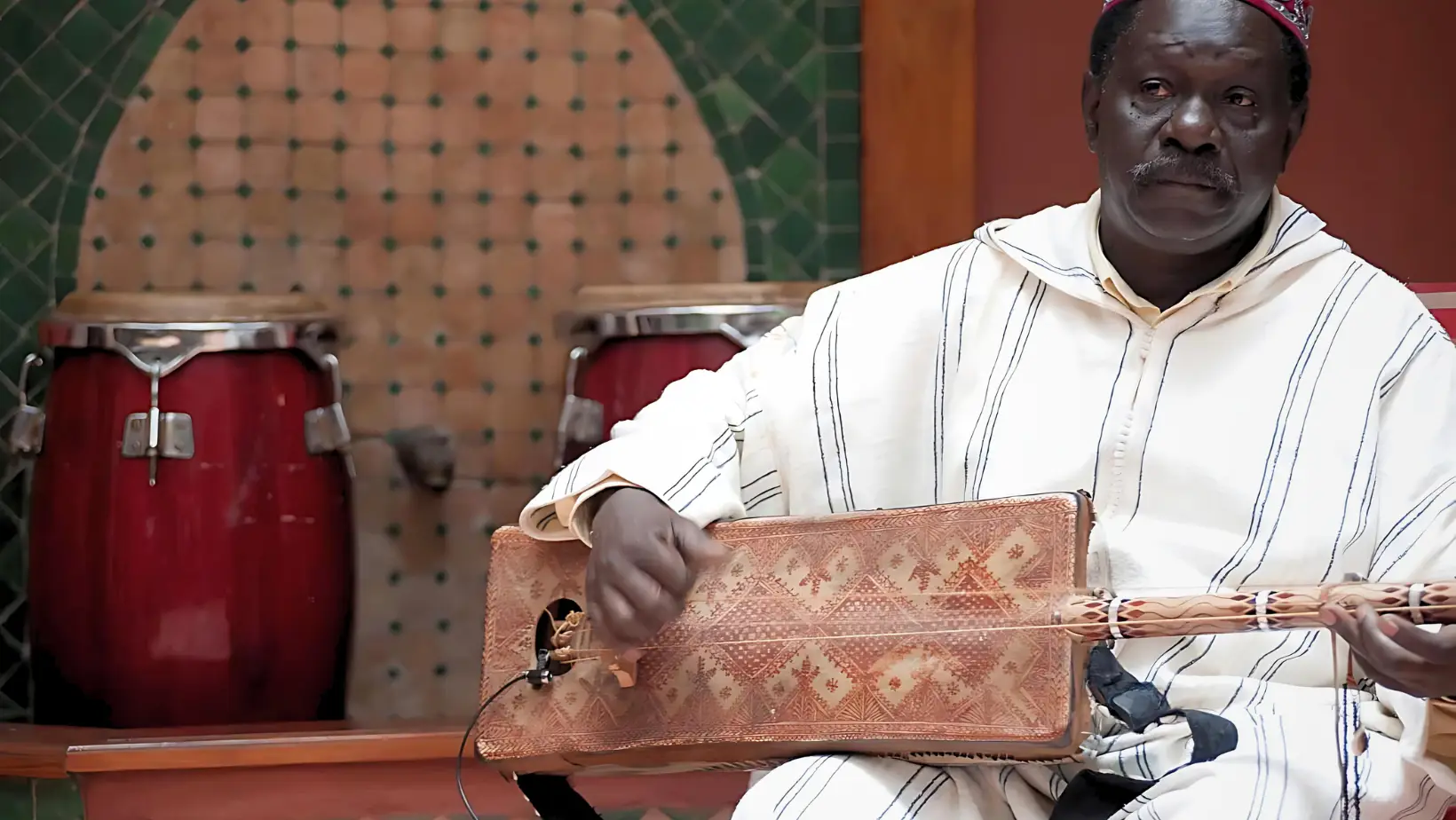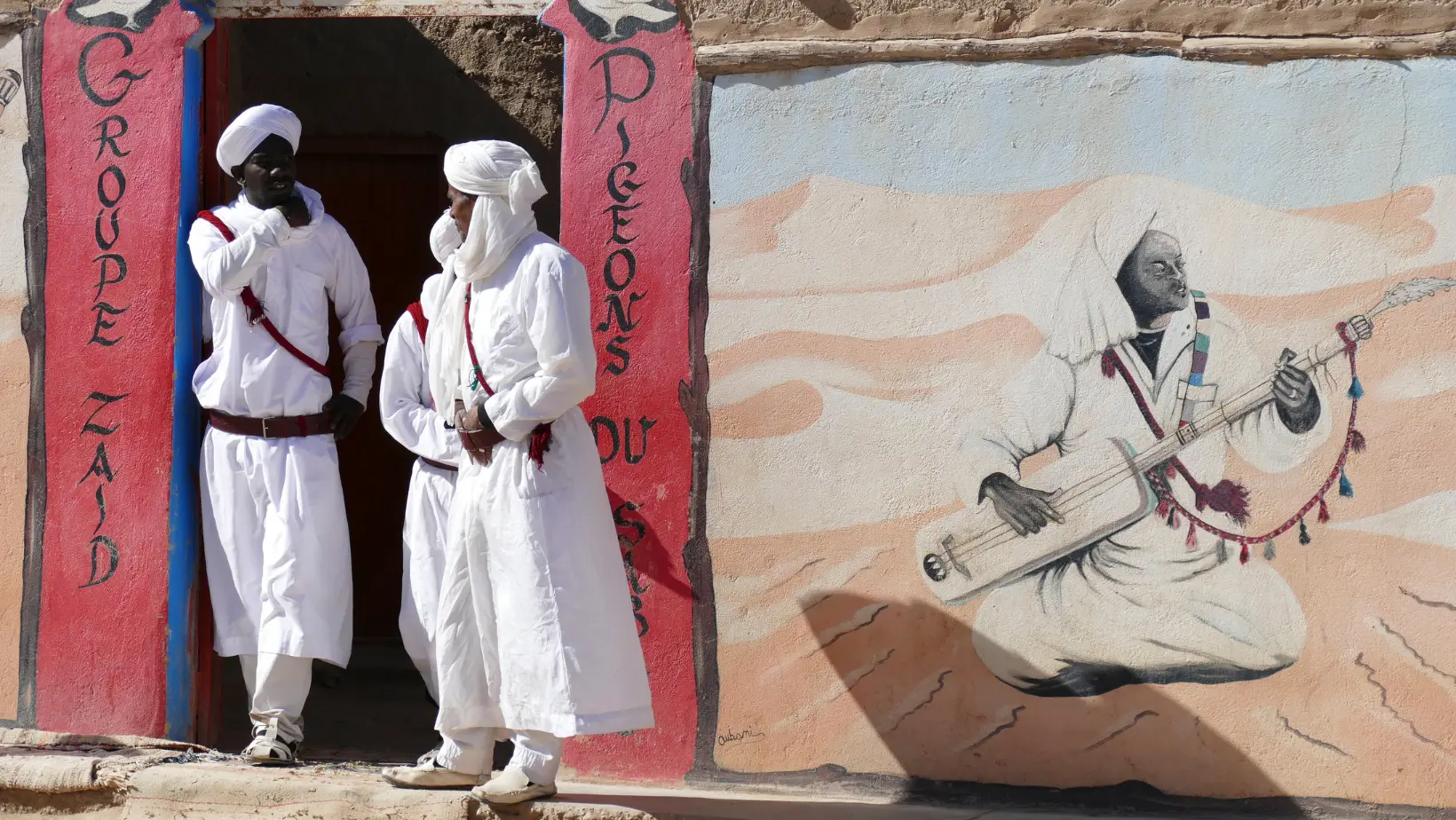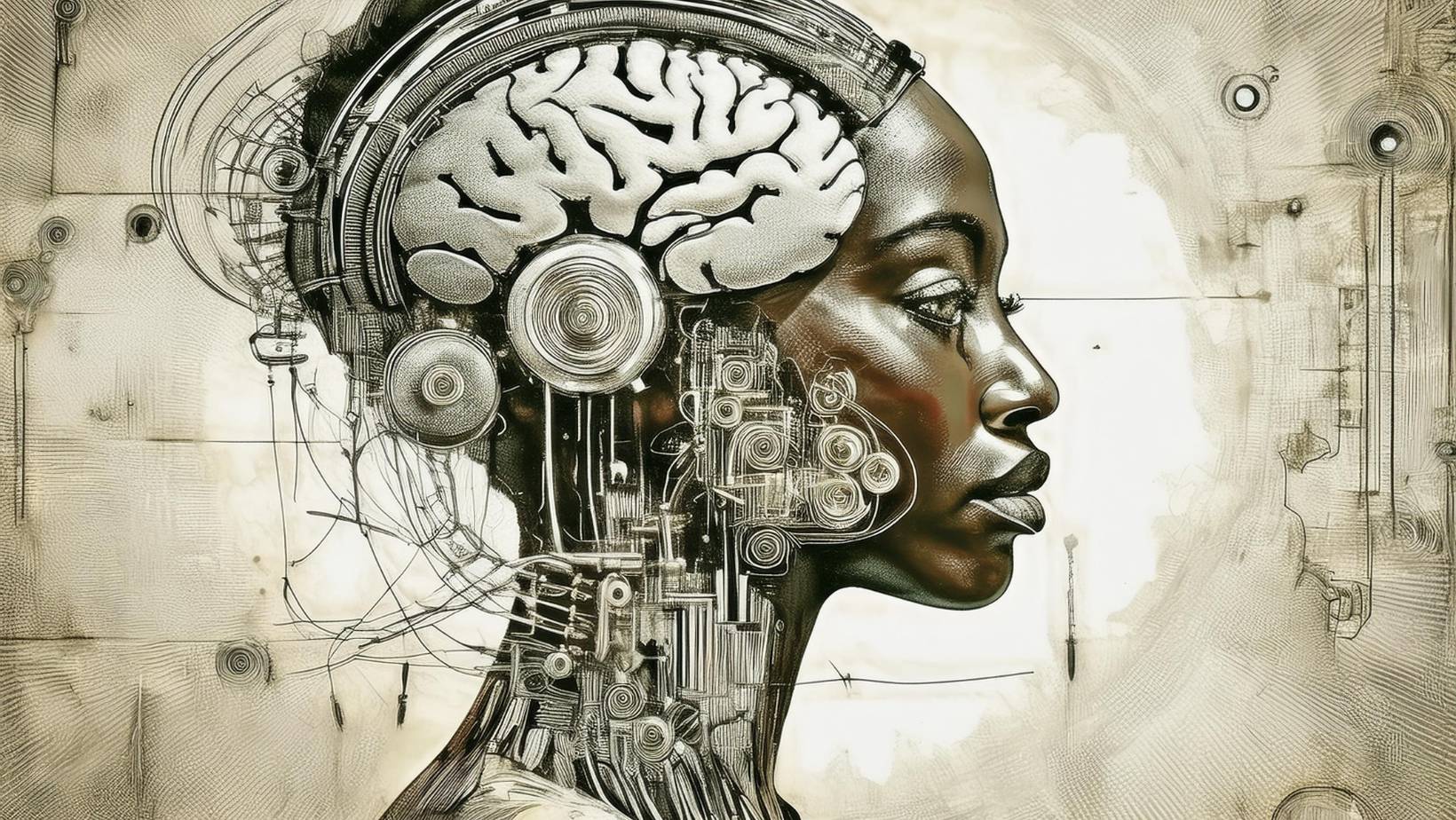Gnawa music, an integral part of North African culture, is rich with themes and narratives that reflect the spiritual, historical, and cultural identity of the Gnawa people. Originating from the descendants of West African slaves, Gnawa has evolved into a unique blend of music and rhythm, deeply rooted in spiritual and communal practices. This article explores the key themes commonly expressed through Gnawa songs and performances.
Spirituality and Mysticism in Gnawa Music
1. Invocation of Spirits
One of the central themes in Gnawa music is spirituality. The music often serves as a medium to invoke and appease spirits known as Mlouk. These spirits are believed to have healing powers and protect those who call upon them. The repetitive and hypnotic rhythms of the Qraqebs and Guembri are designed to facilitate this spiritual connection.
2. Trance and Healing
Gnawa performances are not just musical events, but deeply spiritual ceremonies aimed at inducing a trance-like state. This state of spiritual ecstasy is crucial for the healing rituals, where participants believe they can communicate with the divine and undergo spiritual cleansing. The music’s entrancing quality is a key element in these healing processes.
Historical and Ancestral Narratives
3. Stories of Enslavement
Gnawa music serves as a historical archive, preserving the stories of the Gnawa people’s ancestors who were brought to North Africa as slaves. These songs recount the hardships, resilience, and survival of these individuals, offering a poignant reminder of their historical journey.
4. Cultural Heritage
Beyond the tales of enslavement, Gnawa music encapsulates the broader cultural heritage of the community. It reflects a blend of African, Arab, and Berber influences, showcasing the rich tapestry of traditions and stories that define Gnawa identity.
Religious Syncretism in Gnawa Practices
5. Islamic Influence
While Gnawa music has deep pre-Islamic African roots, it has absorbed significant Islamic elements over time. Many songs include references to Allah, the Prophet Muhammad, and various Islamic saints, illustrating the syncretic nature of Gnawa spirituality.
6. Sufi Traditions
The connection to Sufi practices is evident in Gnawa ceremonies, which often focus on achieving spiritual union with the divine. The mystical elements of Sufism are mirrored in the trance-inducing rhythms and spiritual invocations of Gnawa music.
Everyday Life and Human Experience
7. Love and Relationships
Gnawa songs also touch on themes of love, longing, and human relationships. These narratives reflect the daily life and emotional experiences of the Gnawa community, adding a personal and relatable dimension to the music.
8. Social Commentary
Occasionally, Gnawa music provides commentary on social issues, addressing the challenges and injustices faced by the community. These songs serve as a voice for the marginalized, highlighting the socio-political context of the Gnawa people.
Nature and Cosmic Order
9. Elements of Nature
The lyrics of Gnawa songs frequently reference natural elements such as the sun, moon, stars, and landscapes. These references symbolize various spiritual and emotional states, connecting the music to the natural world.
10. Cosmic Balance
Themes of cosmic order and balance are prevalent in Gnawa music, reflecting the belief in a universe governed by spiritual forces. This cosmological perspective is integral to the spiritual and philosophical outlook of the Gnawa community.
Conclusion
Gnawa music is a profound cultural expression that weaves together spirituality, history, religious syncretism, everyday life, and the natural world. Through its distinctive melodies and rhythms, Gnawa offers a rich and multifaceted narrative that continues to resonate deeply within and beyond the Gnawa community. Understanding these themes provides a deeper appreciation of this unique musical tradition and its enduring cultural significance.
